George will be awarding a $25 Amazon or B/N GC to a randomly drawn winner via rafflecopter during the tour
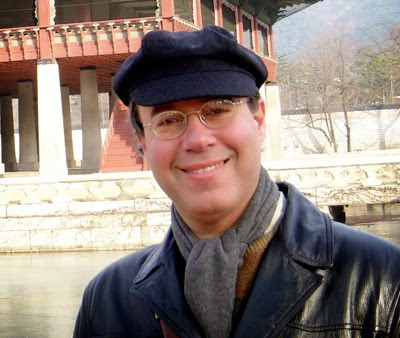
GTC: Let's see... I am a Southern California guy born in Los Angeles whose favorite pastimes as a kid were watching movies at the local theaters and buying books and magazines on history. My university adventures were in film and television that eventually landed me in a masters screenwriting program. My post-graduation fortunes did not pan out as planned and I ended up in marketing, which opened a door to magazine work as a journalist and later an editor. In recent years I have worked with a market research firm. Through the years I always planned to get back to writing fiction and started groundwork on a novel in 1999.
WW: What was your first book?
GTC: If you do not take into consideration the screenplays I wrote a while back, my first novel is Sudetenland, which is historical fiction set during the Sudeten Crisis between Czechoslovakia and Germany during 1938.
WW: Describe your first break.
GTC: As a writer my first break was in 1984 when I pitched a regular article on classic films arriving on home video. It was for a quarterly magazine with the perfect reader base for that subject. The editor liked the idea and I got the assignment, which lasted several years until the publishing company was acquired and the magazine was shut down. That gig proved to be very important because it set the stage for the kind of journalism work I would be doing the next 20 years.
WW: What is your favorite genre to read? To write?
GTC: I would like to say historical fiction but not many authors write around the subjects I want to read about. Therefore, I my favorite reads tend to be espionage thrillers or science fiction. As a writer, my take on storytelling tends to have some overlap so you will find ample parts drama, adventure, romance, suspense and comedy. Most of the projects I have mapped out have a strong historical component so historical fiction would be my primary genre as a writer.
WW: Are Happy Endings are must in your stories?
GTC: Good question! My take is there has to be a resolution, which may be happy or not. For example, Sudetenland's ending is positive, with elements that are unsettled. That makes sense because there is a sequel coming later. Everything depends on the kind of story you are writing. To have a firm policy on happy or sad endings will get you into trouble at some point because that diktat may not jive with the story in hand, which will lead to a resolution that can seem contrived to the reader. The characters I like to write are smart and sassy, which gets them into trouble that they usually can get out of after a struggle. Then again you can follow the ground rules of classic tragedy and have crap befall the hero from no fault of his or her own doing leading to a sad ending. Another aspect is whether you are working with internal or external threat. Often internal threat suggests flaws or personal demons in the character with a higher likelihood of leading to a downer ending.
WW: What makes a protagonist interesting?
GTC: In the simplest terms, how the character deals with threat and conflict. Conflict is the essence of drama so this is an important consideration. Another aspect is what affectations the author has given the characters. These can be mannerisms such as how a character holds a pistol or cigarette, or psychological habits as in how characters react to specific kinds of interactions. But if any of these elements are insincere or contrived, chances are the reader will lose interest.
WW: What is the best thing about being a writer?
GTC: Every day is a stimulating new adventure. There is absolutely zero chance of boredom. This is true for all aspects of the process from research to the actual writing. Other authors are pretty interesting and/or wacky too, so it is a engaging group to be a part of and interact with, Working at a job where the responsibilities were repetitive day in and day out would have driven me crazy.
WW: What is the worst thing?
GTC: Until the advent of ebook self-publishing the worst aspect was getting past the gatekeepers. People who read Sudetenland really like it, or at least respectfully appreciate it. But in the traditional publishing model I break way too many rules for a debut author and the novel would never have gotten past the gatekeepers to the general public.
WW: Pantser or plotter?
GTC: Honestly, somewhere in-between. A strict outline is a waste of time for me since I will always have to blow it up when, inevitably, I change things. Neither does jumping in with no direction at all work. My system is to know where the story starts, where it ends, and major plot points in the middle. That way I can dash and weave any way I want along the way and the end result is true to itself.
WW: What do you see the direction of your future writing taking? What can we expect next? Give us a little taste.
GTC: There's a sequel to Sudetenland in the works and I am in the middle of primary research. But as I am looking at several years before I can get the sequel out I am also working on something else simultaneously. It is an adaptation of a Film Noir screenplay I wrote years. It is a fun story set around late 1940s Los Angeles with a lot of atmosphere. People will find some of the character interaction very similar to that in Sudetenland, which is why I chose to adapt this particular story. The plot is set around some secret German technology from the war that surfaces and people connected to it start turning up dead.
WW: Just for fun
GTC: Sometimes I like to take someone annoying from my past and have a little fun with him or her as a character within the story – nothing nasty, just a little payback.
WW: Cat or dog person?
GTC: Cats are awesome and make great familiars. However, I prefer minions and doggies – otherwise known as subservient quadrupeds – are much better in that capacity.
WW: Favorite food?
GTC: No doubt... Chicken Kapama over pasta. So yummy! It's a Greek dish.
WW: Favorite book?
GTC: Jules Verne's Twenty Thousand Leagues under the Sea. Forget the Disney movie, read the original. Nemo is one of the most compelling, tortured villains out there.
WW: Favorite movie?
GTC: Hands down, Casablanca. For a rank sentimentalist such as myself it is the perfect flick.
WW: Favorite holiday?
GTC: Have to say Thanksgiving remains my favorite holiday. The whole concept of getting the family together with all of the awesome food is something I look forward to year after year.
WW: Would you rather be the princess or the villain? Why?
GTC: I grew up in L.A. so the princess often is the villain. As a guy there would be some novel aspects to being the princess, but likely I would probably would choose the villain. Desperados are so darn fun, they tend to be really smart and they work outside the constraints of society. As someone who likes find a different path to solutions, that is appealing to me.
WW: Who has more fun, orcs or hobbits?
GTC: I plead guilty to playing World of Warcraft for way too long so it would have to be orcs... "Lok-Tar!"
BLURB:
Sudetenland is the premiere novel by author George T. Chronis. The book delivers suspenseful and sweeping historical fiction set against Central European intrigue during the late 1930s leading up to 1938’s Munich Conference. Having swallowed up Austria, Adolph Hitler now covets Czechoslovakian territory. Only France has the power to stand beside the government in Prague against Germany… but will she? The characters are the smart and sometimes wise-cracking men and women of this era – the foreign correspondents, intelligence officers, diplomats and career military – who are on the front lines of that decade’s most dangerous political crisis. If Czechoslovak president Edvard Beneš ignores the advice of French premier Édouard Daladier and refuses to give up Bohemian territory willingly, then Hitler orders that it be taken by force. The novel takes readers behind the scenes into the deliberations and high drama taking place within major European capitals such as Prague, Paris, Berlin, Vienna and London as the continent hurtles toward the crucible of a shooting war.
~~~~~~~~~~~~~
Excerpt One:
So this was how it was to be. Abandoned like a faithful spouse to the vagaries of a cheating scoundrel. Despite all of the warning signs and the advice of good friends, the fleeting hope that the one who you had invested so much history with would not betray that which had taken so long to build, was dashed. What Masaryk had said on the phone was right: screw them!
Štefan Osušky could not remember when he had felt so embittered. The Franco-Czechoslovak Pact was dead. It had been dying for months through the long summer. For the last hour Bonnet had hammered the death certificate onto a public wall. Osušky had been summoned to the Quai d'Orsay to meet with the French foreign minister. Daladier and his cabinet ministers had been meeting since ten-thirty in the morning at the Élysée Palace to approve or reject the Anglo-French plan that Daladier had crawled back to Paris with from London. When they had finished, Osušky was to be waiting at Bonnet's office to hear the results. No audience with the premier was available.
Osušky held no illusions as to what Chamberlain had proposed to Daladier. The newspapers had been shockingly detailed in their presentation of the expected major points. So many leaks to such a plethora of reporters usually suggested a raison d'être behind the disclosures. Osušky calculated there was a chance those ministers in Daladier's cabinet that opposed ceding Czech territory to Hitler might be setting the stage for an uprising against Chamberlain's cravenly acquiescence to the dictator… but a very small chance.
When Bonnet arrived back from Élysée Palace he got right to the point. Daladier's cabinet had unanimously approved the Anglo-French plan. As Bonnet read off the terms it was just as the press reports had purported. The only difference was that Bonnet had the full list while most of the newspapers lacked one component or another. The next hour was a blistering back and forth between the two diplomats. Osušky reminded Bonnet of the last two years of French assurances, to which the Frenchman countered the break-up of Czechoslovakia was, the least unpleasant solution. Osušky went on to reiterate the fullness of France's treaty obligations only to be instructed they were mere words on paper. The British had said in no uncertain terms that if Prague refused the Anglo-French plan then Britain would disassociate itself from the dispute. Without British solidarity the assistance that France could offer Czechoslovakia was of no effectiveness. The Czechs would not be allowed to drag France into a war over three-and-a-ha
lf million Sudeten Germans. Osušky's further protests only fed Bonnet's burgeoning hostility. France demanded that Czechoslovakia accept the plan. That was the message Osušky was to take to President Beneš without further argument.
There was nothing more to say to such intransigence so Osušky made his leave. Heading down the hall to the main entrance, Osušky felt his own emotions exploding as he replayed Bonnet's words in his head. The ostiary opened the tall, narrow door Osušky had been through so many times in better days and the Czechoslovak envoy stepped out to overlook a courtyard full of anxious correspondents. He couldn't restrain himself.
"Do you want to see a man condemned without a hearing?" Osušky played to the crowd while descending the stairs. "Here I stand!"
AUTHOR Bio and Links:
After years as a journalist and magazine editor, George T. Chronis decided to return to his lifelong passion, storytelling. A lover of both 1930s cinema and world history, Chronis is now devoted to bringing life to the mid-20th Century fictional narratives that have been in his thoughts for years. Sudetenland is his first novel. Taking place during turbulent times in Central Europe during the 1930s, the book took eight years to research and write. The author is already hard at work on his second novel.
Chronis is married with two daughters, and lives with his wife in a Southern California mountain community.
Links
www.sudetenland.georgetchronis.com
www.georgetchronis.tumblr.com
www.georgetchronis.com
Buy Links
www.georgetchronis.com/book/381-2/
www.georgetchronis.com/book/112-2
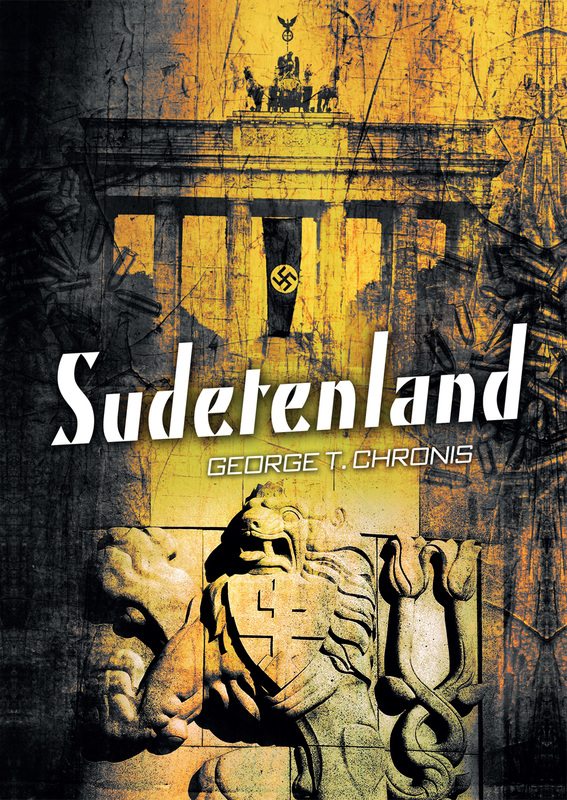

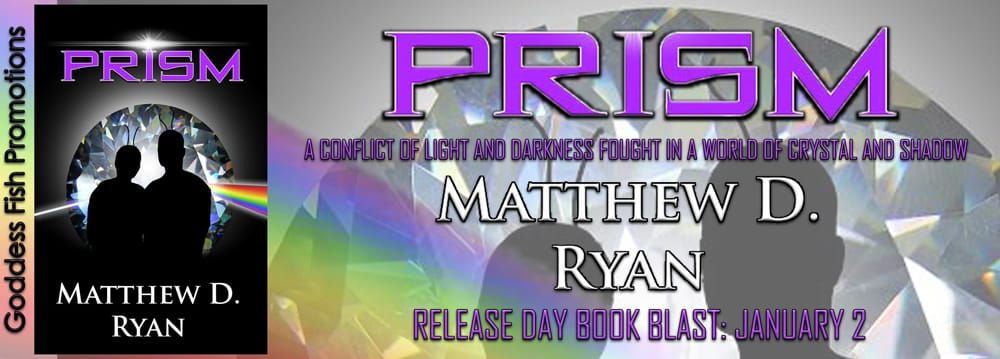
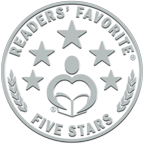
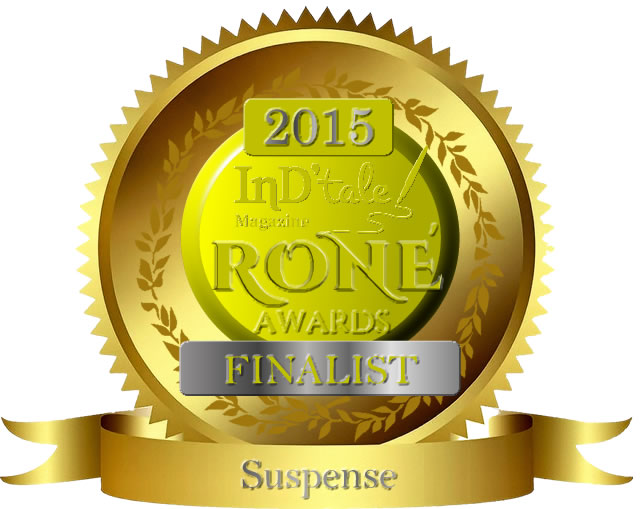
 RSS Feed
RSS Feed
